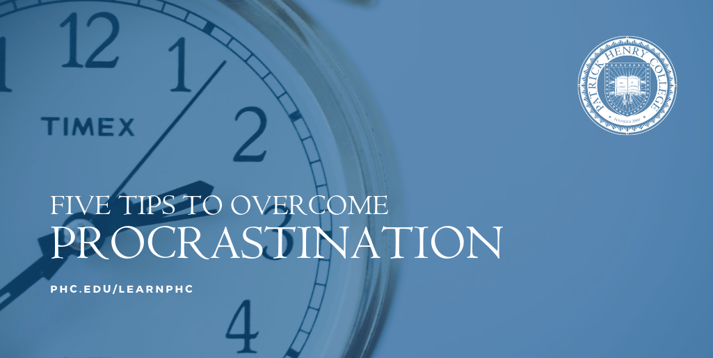
What’s worse is starting out with plenty of time, but somehow letting it all slip away! Even after hours have past, staring at that empty white screen, the pile of homework, or set of flashcards that still needs to be memorized can be incredibly discouraging. Procrastination is a hard habit to overcome, but it’s possible. Here’s five tips that might help you get sixty seconds out of a minute.
Know Your Patterns
Nobody procrastinates all the time. That would be truly impressive. The fact is that most procrastinators have some sort of a pattern—some tick that makes them feel like they have to start doing something else. It’s not a coincidence that every time you go to write that essay you start to feel hungry or have a sudden craving for Starbucks. Some people feel like they need a change of scenery as soon as they sit down. Knowing when you’re most tempted to procrastinate is important and will give you a better idea of how to adjust and overcome your obstacles.
Get a Planner
It doesn’t have to be a leather-bound book with days, months, and side tabs. But what you do need is a place to write down the things you have to do. Sometimes, people procrastinate because they feel like there’s far too much on their plate to realistically get done. Others escape from work because they’ve simply forgotten how much is on the to-do list. Either way, writing down your goals will give you a visual and pragmatic way to keep track of what’s next. You don’t have to schedule out every hour of the day, but without a way to keep track of upcoming tasks, assignments can easily slip through the cracks.
Get a Job
Jobs are some of the best learning experiences. Nothing can teach the value of eight hours like a nine to five. While most student's can't take a full-time position, a part-time job or a volunteer position can introduce students to time management like few other activities can. Learning to budget can be really hard if you have a lot of spending money. In the same way, learning to manage time can be difficult if there isn’t much there to manage. Procrastination can sometimes be a result of not having a tangible perspective of time. Getting a job is a great way to get perspective on time and how fast—or slow—it can sometimes go. It might seem counter-intuitive to fight procrastination by putting more on your plate, but by having a job, you can learn to be more conscious and purposeful with your time.
Use a Timer
Time yourself. See how much you regularly get done in an hour. Sixty minutes may seem like a long time. But if you can realize that it’s only four-15 minute periods, it starts to seem a lot shorter. When you use a timer, you’re more conscious of that time that is ticking away. It can be that little bit of pressure you need to keep at a steady pace. This practice will also help you know and estimate how long things will take to get done in the future.
Don't Look Back
Once you've started working, don't look back! Keep your momentum going for a set period of time and with a particular goal in mind. Make sure that you don’t stop until you reach the goal you’ve set. The hardest part of working is the beginning of the process. If you stop, it can be a pain to get started again. It can really be tempting to take a break once you've started working—especially if there’s still a lot of time left. To make the most of your momentum, keep concentrated on the task at hand and avoid small distractions such as Facebook and YouTube.
Whether you’re doing schoolwork or working on a side-project, managing time is one of the best skills you can learn. Just like with any other skill, the more you practice, the better you will get. Click here to take a look at Patrick Henry College's online resource guide!
-----
Learn how PHC stands apart from other Christian liberal arts programs.
Patrick Henry College exists to glorify God by challenging the status quo in higher education, lifting high both faith and reason within a rigorous academic environment; thereby preserving for posterity the ideals behind the "noble experiment in ordered liberty" that is the foundation of America.




